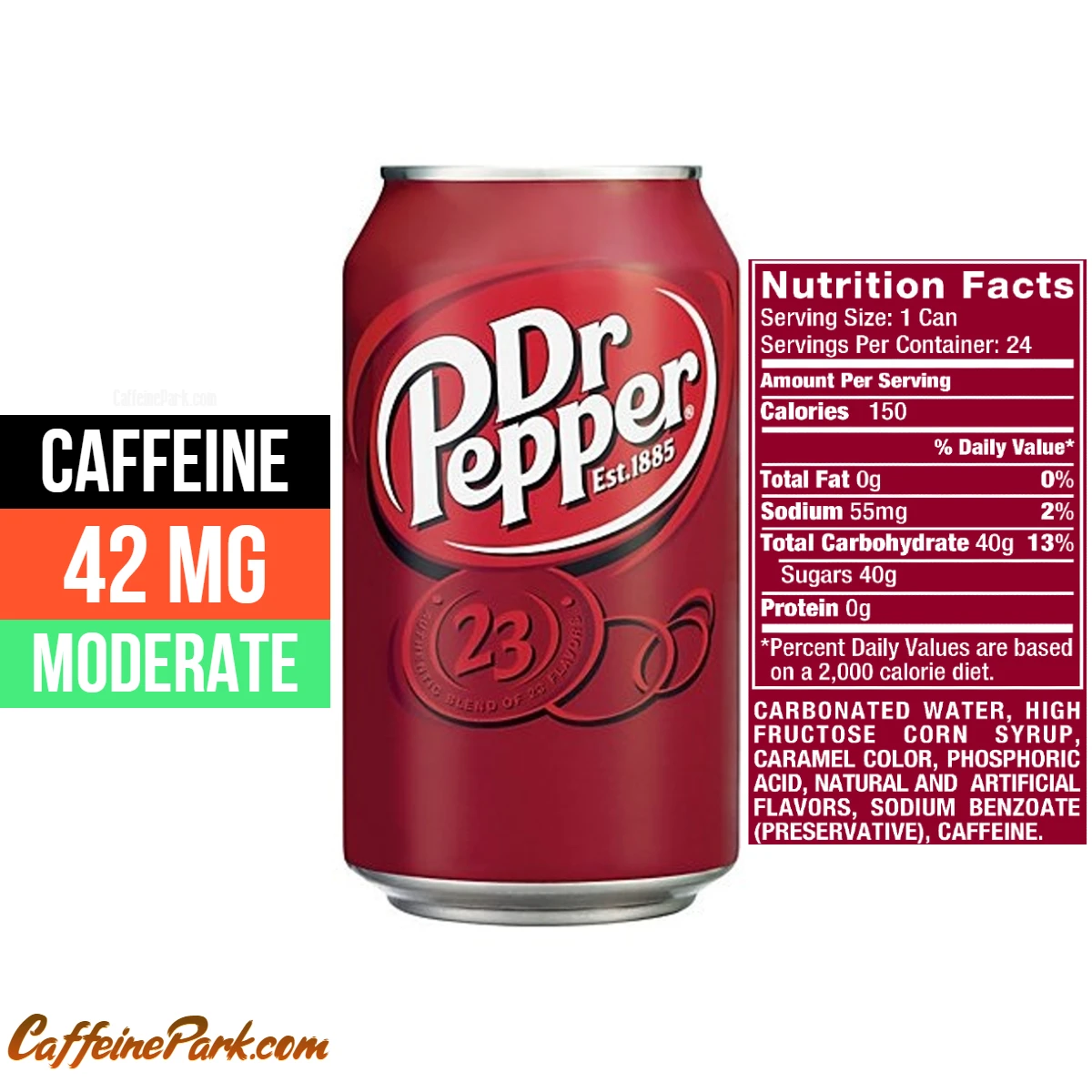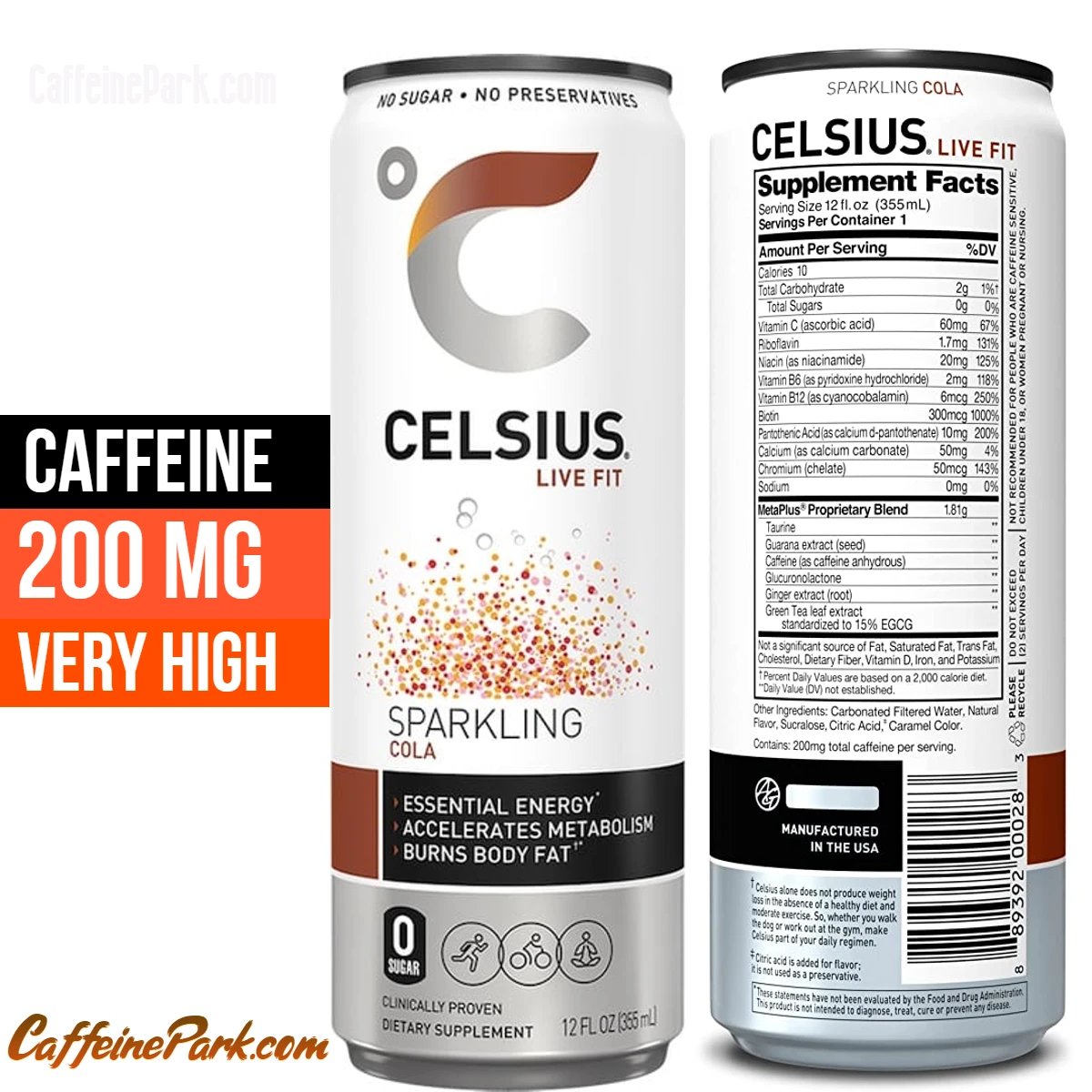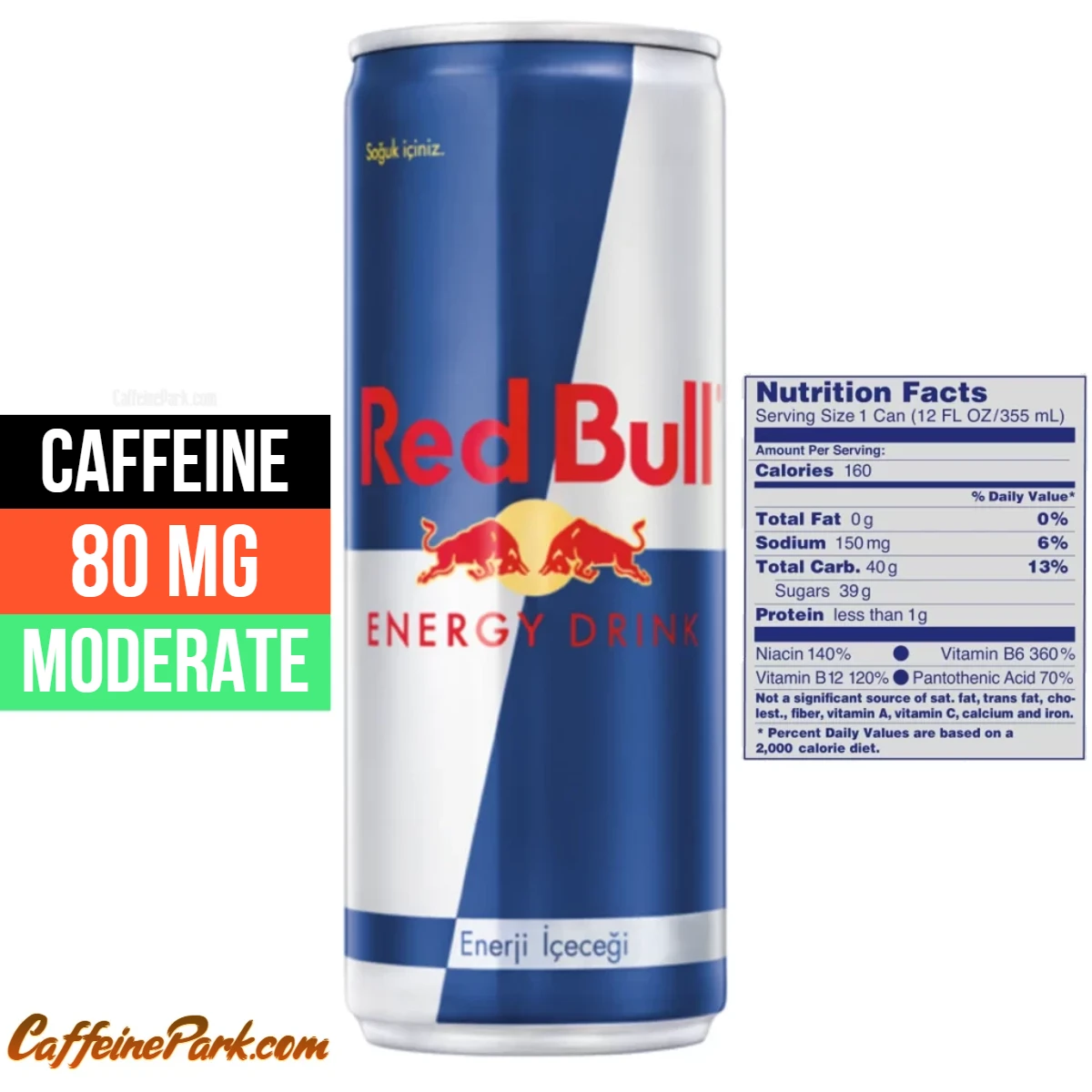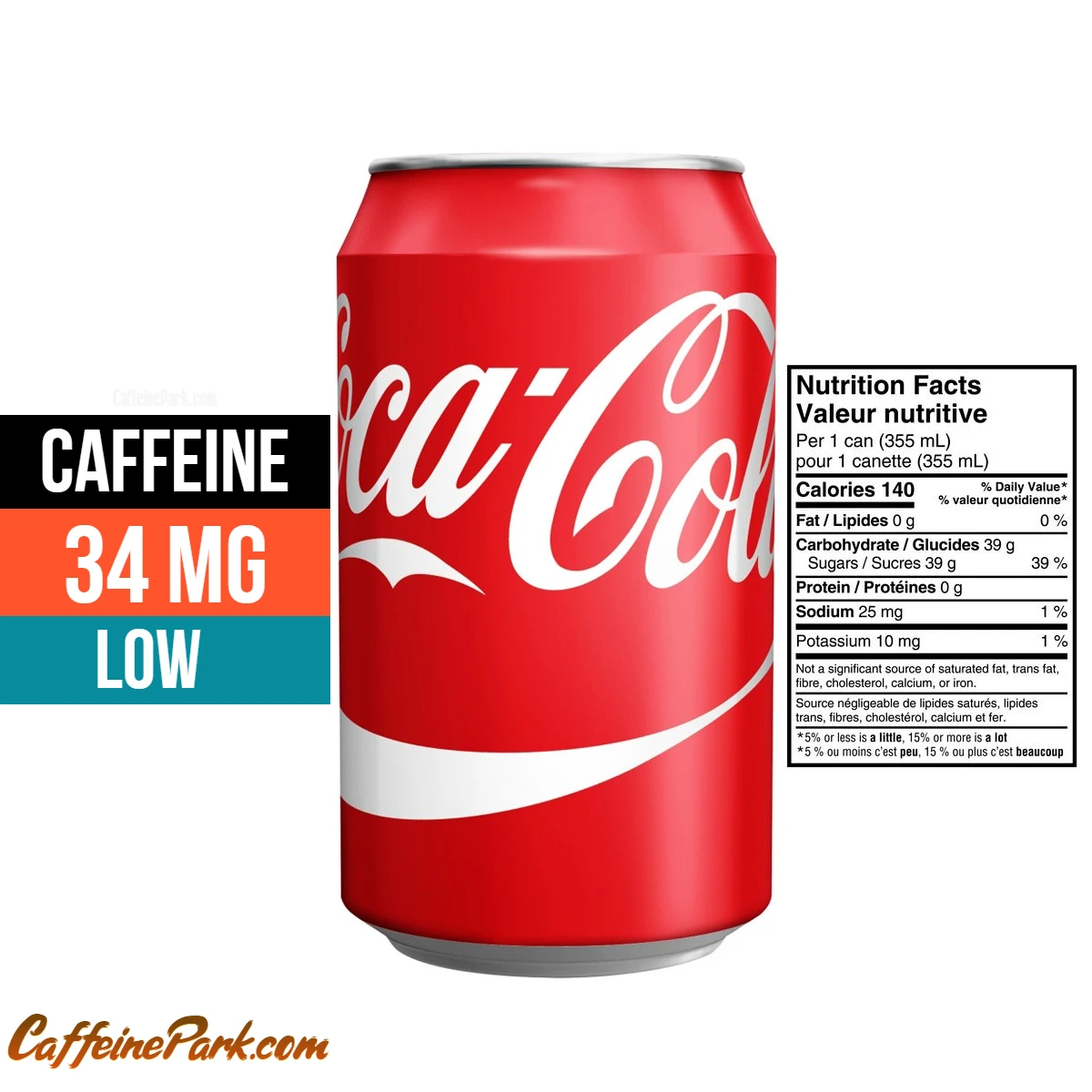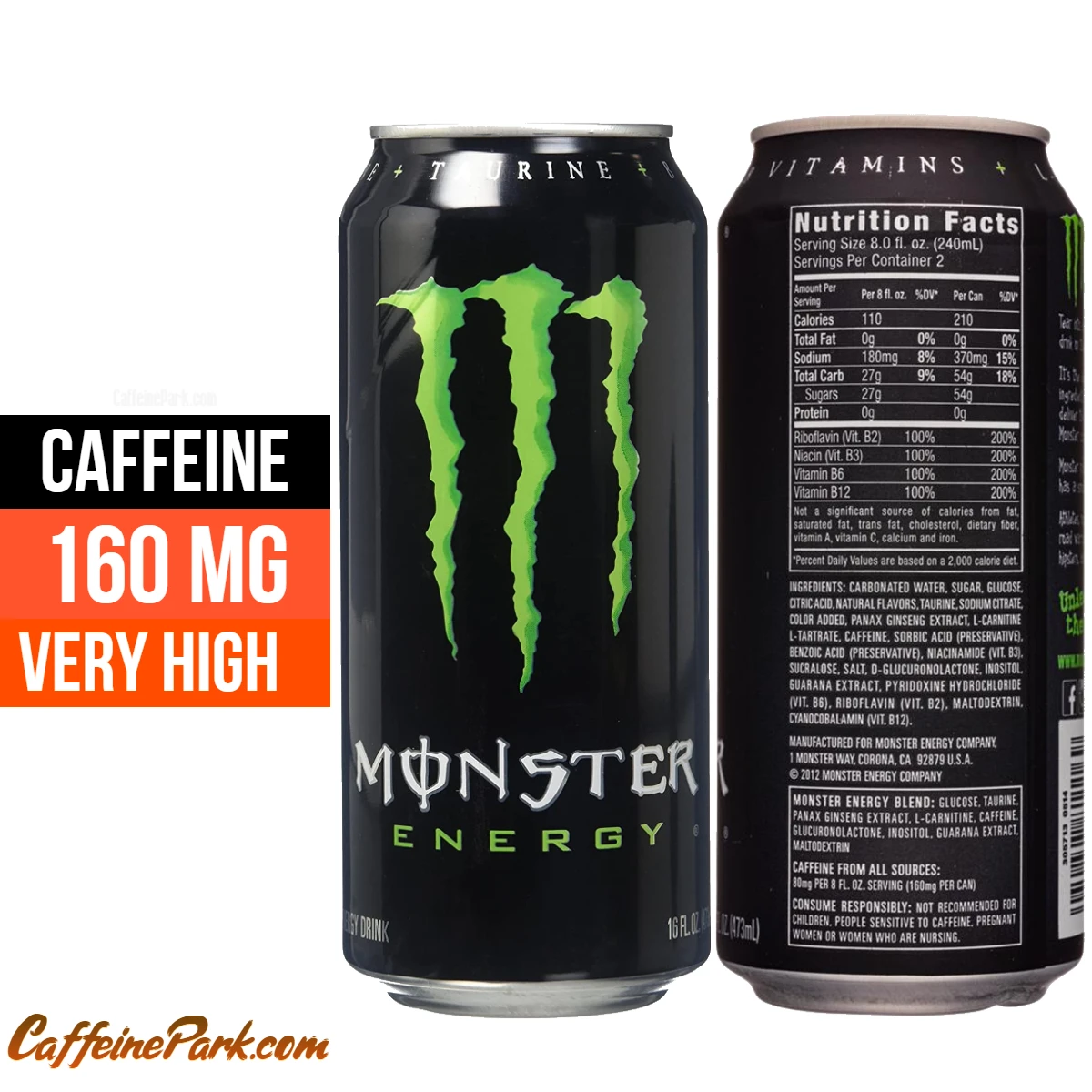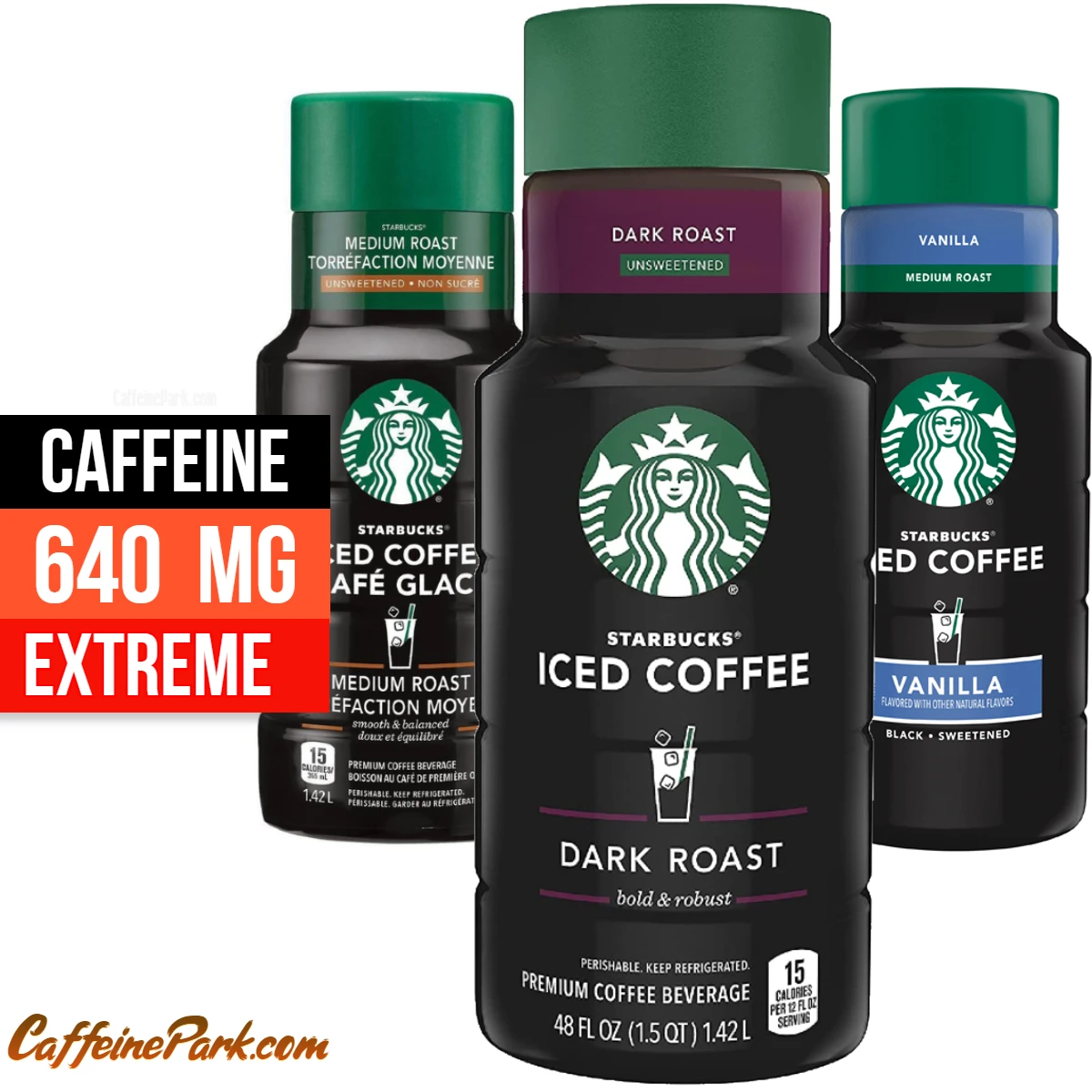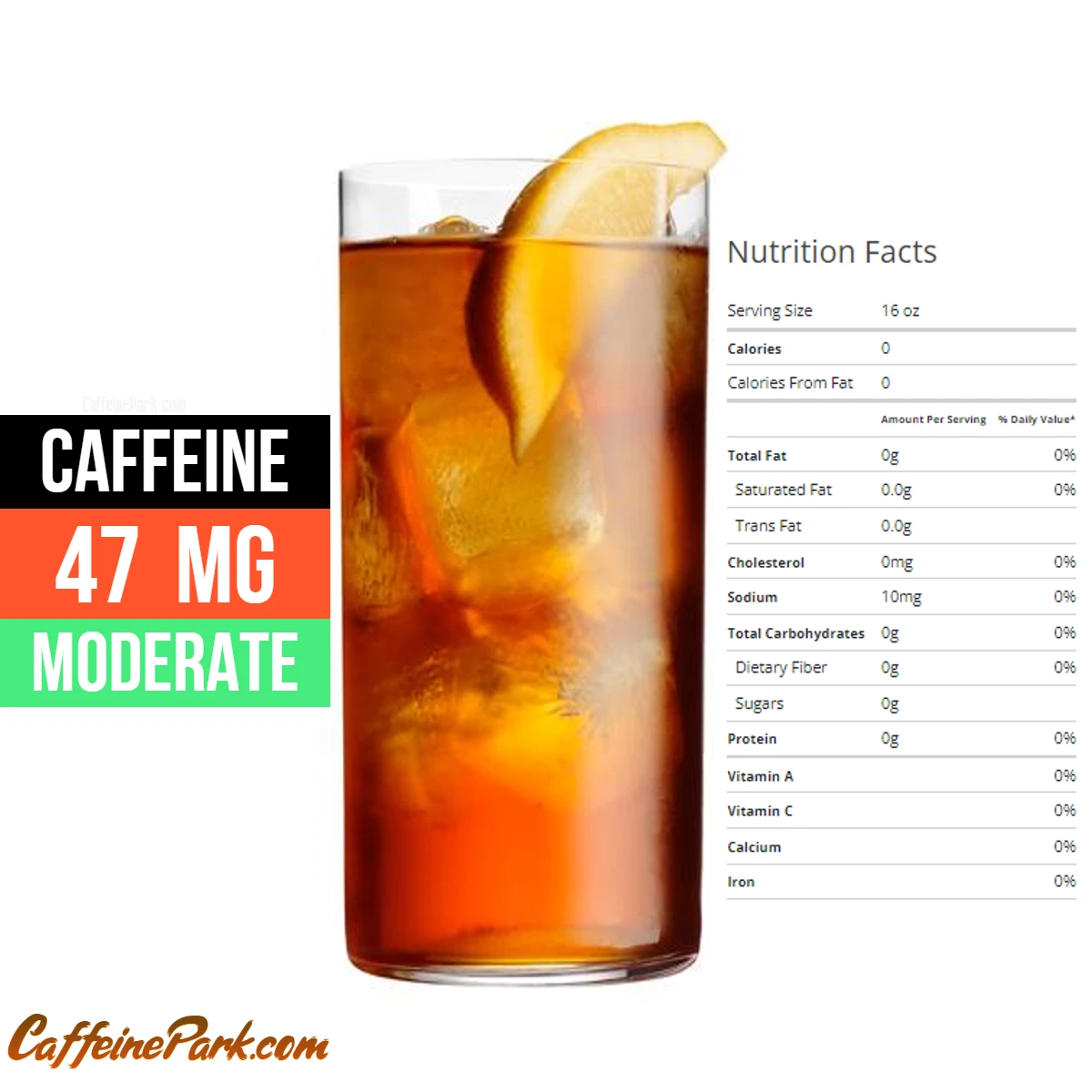
Iced tea is a refreshing and popular beverage enjoyed by many people around the world. The classic recipe for iced tea is simple: brew black tea, add water and ice, and enjoy. However, there are many variations and variations to this recipe that can affect the caffeine content of the final drink.
The basic ingredients in iced tea are black tea and water. The Black tea is brewed with hot water, which extracts the caffeine and other compounds from the leaves. The tea is then cooled and combined with additional water and ice. Some people also add sweeteners, such as sugar or lemon, to their iced tea for additional flavor.
The caffeine content of iced tea can vary depending on several factors. On average, A typical 8 fl oz cup of iced tea made with 1 tea bag per 8 fl oz of water, has a total of 47 mg of caffeine. This is considered to be a moderate amount of caffeine and is similar to the caffeine content of a cup of coffee.
The first and most obvious depending caffeine content of iced tea is the type of tea used. Black tea, which is the most common type of tea used for iced tea, generally has a higher caffeine content than other types of tea, such as green tea or white tea. The amount of tea used is also important. The more tea is used, the higher the caffeine content will be.
The amount of water added is also a factor. More water means a weaker tea and less caffeine, while less water means a stronger tea and more caffeine. The type and quality of tea used can also affect the caffeine content. Higher-quality teas generally have a higher caffeine content than lower-quality teas.
The steeping time is also important. The longer the tea is steeped, the more caffeine will be extracted from the leaves. However, steeping for too long can result in a bitter taste. The ratio of tea bag to water is also critical, for example, 1 tea bag per 8 fl oz of water.
Branded iced teas can also have varying caffeine levels. Some popular brands, such as Turkey Hill, Honest, and Tejava, have higher caffeine levels than others, such as Nestea and Lipton (To see the complete caffeine table of iced tea brands, refer to the middle of the article).
It’s worth noting that some branded iced teas can be high in sugar and may have only a small amount of actual tea extract. With continued moves to lower sugar amounts, more iced tea brands are changing formulations.
Does Iced Tea have caffeine?
Yes, Iced Tea contains 47mg of caffeine per 8 fl oz cup and 5.88mg of caffeine per fl oz (19.87mg per 100ml). Decaf Iced Tea contains 1mg of caffeine per cup.
| Serving size | Caffeine Amount | Caffeine strength |
|---|---|---|
| 100ml | 19.9 mg | LOW |
| 8 fl oz cup | 47 mg | MODERATE |
| 12 fl oz cup | 70.5 mg | MODERATE |
| 16 fl oz cup | 94 mg | HIGH |
- Caffeine Amount: 47 mg
- Caffeine strength: MODERATE
- Calories: 0
- Serving size: 8 fl oz cup
Determinants of the caffeine content of iced tea:
- Amount of tea bags
- Amount of water
- Amount of ice
- Type and quality of tea
- Steeping time
Ingredients in Iced Tea
- Black Tea
- Water
Caffeine in Iced Tea Brands
Some branded iced teas contain a lot of sugar, but low amounts of tea extracts. In fact, some still use tea extracts as sweeteners despite the new sugar regulations. The caffeine content of other Branded Iced Teas:
| Iced Tea Brands | Calories | Caffeine |
|---|---|---|
| Long Island Iced Tea | 0 | 36mg |
| Turkey Hill Iced Tea | 120 | 64mg |
| Tejava Iced Tea | 0 | 50mg |
| Chick-fil-A Iced Tea | 120 | 62mg |
| Pure Leaf Iced Tea | 160 | 69mg |
| Honest Iced Tea | 70 | 63mg |
| Dunkin’ Donuts Iced Tea | 230 | 63mg |
| Biggby Iced Tea | 0 | 38mg |
| Wendy’s Iced Tea | 5 | 32mg |
| Arizona Iced Tea | 190 | 30mg |
| Nestea Iced Tea | 160 | 23mg |
| Crystal Light Iced Tea | 5 | 10mg |
| Lipton Iced Tea | 110 | 25mg |
| Fuze Iced Tea | 160 | 24mg |
| Brisk Iced Tea | 70 | 11mg |
Compare Caffeine in Iced Tea vs Coffee
When comparing the caffeine content between iced tea and coffee, it’s important to note that the caffeine levels can vary depending on several factors, including the type of tea or coffee and the brewing method. Here’s a general comparison of caffeine in iced tea and coffee:
Iced Tea:
- Caffeine Content: On average, an 8 fl oz cup of iced tea contains around 47mg of caffeine. However, the caffeine content can differ based on the type of tea used and the brewing process.
- Varieties: Iced tea can be made from different types of tea leaves, such as black tea, green tea, white tea, or herbal tea. Each variety may have varying caffeine levels, with black tea generally containing higher amounts compared to other types.
- Brewing Methods: The caffeine content in iced tea can be influenced by the brewing method. Steeping tea leaves for a longer duration or using hotter water can result in more caffeine extraction. However, the concentration of the tea concentrate used in the final iced tea can also affect the overall caffeine content.
Coffee:
- Caffeine Content: A standard 8 fl oz cup of brewed coffee typically contains around 95mg of caffeine. However, this can vary depending on factors like the type of coffee beans, roast level, and brewing method.
- Varieties: Coffee is available in various forms, including espresso, drip-brewed coffee, instant coffee, and specialty coffee drinks. Each type can have different caffeine levels. For instance, espresso generally contains higher caffeine concentration compared to regular brewed coffee.
- Brewing Methods: The caffeine content in coffee can be influenced by the brewing method. Brewing coffee with longer contact times or using higher coffee-to-water ratios can result in a higher caffeine extraction.
Review
iced tea is a popular and refreshing beverage that can provide hydration and antioxidants. It’s a healthier alternative to sugary drinks and can be enjoyed by people of all ages. However, it’s important to be mindful of the caffeine content if you’re sensitive to it or have a medical condition that is affected by it.
History
Iced tea is a popular beverage made by brewing black tea and then adding additional water and ice. The origins of iced tea can be traced back to the 19th century when tea merchants in the Southern United States began to promote the drink as a way to cool off during hot summer months. The first recorded instance of iced tea being served at a public event was at the 1904 World’s Fair in St. Louis, Missouri, where a tea merchant named Richard Blechynden was promoting his tea by offering samples of hot tea to visitors.
However, with the temperatures reaching over 100 degrees Fahrenheit, few visitors were interested in a hot drink. In an effort to boost sales, Blechynden poured his tea over ice, and the refreshing drink was an instant hit. Today, iced tea is enjoyed by people all over the world, and is available in a wide variety of flavors and varieties. Iced tea quickly gained popularity and is now a staple beverage in the United States and many other countries around the world.
Taste and Flavor
Iced tea has a refreshing, crisp taste that is perfect for a hot summer day. The tea leaves used to make iced tea are typically black, green tea, or white tea. Black tea is the most common type of tea used to make iced tea, due to its bold and robust flavor. Green tea is also a popular choice for iced tea, as it has a lighter and more delicate taste. White tea is also used for iced tea, it is made from the youngest leaves of the tea plant and has a more delicate and floral taste.
Ingredients and Nutrition
The basic ingredients in iced tea are black tea and water. The Black tea is brewed with hot water, which extracts the caffeine and other compounds from the leaves. The tea is then cooled and combined with additional water and ice. Some people also add sweeteners, such as sugar or lemon, to their iced tea for additional flavor.
Iced tea is a low-calorie beverage, with a typical 8 fl oz cup containing only about 5 calories. However, if you add sweeteners such as sugar, honey, or syrups, the calorie content will increase. Iced tea is also a good source of antioxidants, which help to protect the body against damage from free radicals.
Some brands may also add additional ingredients such as sugar, lemon juice, or artificial flavors. The caffeine content of iced tea can vary depending on the amount of tea used, the brewing time, and the type of tea used. An 8 fl oz cup of iced tea typically contains around 47 mg of caffeine.
Benefits
Iced tea is a refreshing and hydrating beverage that is packed with health benefits. Regular consumption of iced tea has been associated with a reduced risk of heart disease, stroke, and certain types of cancer. The antioxidants present in iced tea, particularly polyphenols, have been shown to have anti-inflammatory and anticancer properties. Iced tea is also a good source of hydration, and can help to keep you feeling refreshed and energized throughout the day.
Side Effects
While iced tea is generally considered to be safe to consume, there are a few potential side effects that you should be aware of. The most common side effect of iced tea is that it contains caffeine. Consuming too much caffeine can cause side effects such as jitteriness, insomnia, and increased heart rate. It’s important to limit your intake of iced tea if you’re sensitive to caffeine or have a medical condition that is affected by it.
Price and Availability
Iced tea is widely available and can be purchased at most grocery stores, convenience stores, and restaurants. Prices can vary depending on the brand and size of the container. Branded iced teas can be found at a reasonable price, and homemade iced teas can be made at home with a tea bag and water.
Comparison to Others
Iced tea is typically compared to other cold beverages such as soda, lemonade, and juice. Iced tea is a healthier option as it is typically made from tea leaves, which contain antioxidants, and it is usually not as sweet as soda or lemonade. Juice, on the other hand, may contain more natural sugars and fewer antioxidants. Additionally, iced tea can be made with different types of tea leaves, giving it a wider range of flavor options compared to other beverages. Some people also prefer the taste of iced tea over coffee as an iced coffee may have a bitter aftertaste.
Iced tea can also be compared to hot tea. While hot tea is typically consumed warm, iced tea is consumed cold. Some people prefer the taste of iced tea over hot tea because it is more refreshing and less bitter. Iced tea can also be flavored with a variety of fruits, herbs, and sweeteners, whereas hot tea is usually consumed plain or with a small amount of honey or sugar.
Another comparison that can be made is between iced tea and smoothies. Smoothies are thicker and creamier compared to iced tea and are made by blending fruits and vegetables. Iced tea is made by steeping tea leaves in water and then cooling them. Iced tea is a healthier option than smoothies as it has less sugar and calories.
Finally, Iced tea is also compared to cold brew coffee, especially in recent years. Both are considered refreshing and perfect for hot weather. Cold brew coffee may have a stronger taste compared to iced tea and it also contains more caffeine.
Customer Reviews
Iced tea is generally well-received, with most people finding it to be a refreshing and thirst-quenching beverage. Some customers may prefer iced tea to be sweeter or less bitter and may choose to add sweeteners or other ingredients to enhance the flavor.
Pros and Cons
Pros:
- Refreshing and hydrating
- Low in calories
- Contains antioxidants
- Widely available
Cons:
- Can contain a moderate amount of caffeine
- The flavor may not be sweet enough for some
- Price may vary depending on the brand
Alternative to Iced Tea
If you’re looking for an alternative to iced tea, there are several refreshing beverages you can explore. Here are a few options:
- Infused Water: Create your own flavored water by infusing it with fresh fruits, herbs, or vegetables. Simply add slices of citrus fruits like lemon, lime, or orange, along with herbs like mint, basil, or cucumber, to a pitcher of water. Let it infuse for a few hours in the refrigerator, and you’ll have a refreshing and hydrating alternative to iced tea.
- Fruit Infusions: Similar to infused water, you can create fruit infusions using a variety of fruits. Chop up your favorite fruits, such as berries, watermelon, pineapple, or mango, and place them in a pitcher. Fill it with water or sparkling water, and let the flavors meld together for a fruity and flavorful beverage.
- Herbal Infusions: Explore the world of herbal teas for a caffeine-free alternative to iced tea. Herbal teas are made from a variety of plants and offer unique flavors and potential health benefits. Some popular herbal teas include chamomile, peppermint, hibiscus, or rooibos. Brew them and chill them for a delicious and soothing iced herbal tea.
- Flavored Sparkling Water: Sparkling water with natural fruit flavors is a great option for those who enjoy the effervescence of carbonated drinks. Look for unsweetened or lightly sweetened varieties with no added sugars or artificial sweeteners. These refreshing drinks provide a bubbly alternative to iced tea.
- Fruit Smoothies: Blend your favorite fruits with ice, yogurt, or milk, and a touch of sweetener to create a satisfying and refreshing fruit smoothie. You can experiment with different combinations of fruits and add-ins like spinach, chia seeds, or protein powder for added nutrition.
- Coconut Water: For a hydrating and tropical option, consider coconut water. It is naturally refreshing, rich in electrolytes, and low in calories. Enjoy it chilled for a taste of the tropics and a natural alternative to iced tea.
FAQs
Iced tea is a type of cold beverage made by brewing tea leaves in hot water and then chilling them.
A standard 8 fl oz cup of iced tea contains approximately 47mg of caffeine.
The caffeine content in iced tea primarily comes from the tea leaves used to brew the beverage. Different types of tea, such as black tea, green tea, or herbal tea, may have varying caffeine levels.
The brewing method can influence the caffeine content in iced tea. Generally, longer steeping times and higher water temperatures during brewing can result in higher caffeine extraction.
The caffeine content in iced tea and hot tea can be similar, assuming the same type of tea and brewing parameters are used. However, the concentration of caffeine in iced tea may vary depending on the amount of tea concentrate used to make the final beverage.
Yes, decaffeinated versions of iced tea are available. Decaf iced tea undergoes a process to remove most of the caffeine content, resulting in a significantly reduced caffeine content. Decaf iced tea typically contains about 1mg of caffeine per cup.
Iced tea is made by brewing black tea and then adding additional water and ice. Some may choose to also add sugar, lemon, or other sweeteners to their iced tea before drinking.
The amount of caffeine in iced tea can vary due to several factors such as the amount of tea bags used, amount of water added, amount of ice added, type and quality of tea used, and steeping time. On average, an 8 fl oz cup of iced tea contains around 47 mg of caffeine.
There are many different types of iced tea, including black, green, white, oolong, and herbal iced tea. Some popular flavorings and sweeteners that can be added to iced tea include lemon, mint, honey, and sugar.
Yes, iced tea can also be made using other teas such as green tea and white tea. The caffeine content of these iced teas will generally be lower compared to black tea.
Yes, pre-made iced tea is widely available at many grocery stores and convenience stores. Some popular brands include Turkey Hill, Tejava, Chick-fil-A, Pure Leaf, Honest, Dunkin’ Donuts, Biggby, Wendy’s, Arizona, Nestea, Crystal Light, Lipton, Fuze, and Brisk.
Some branded iced teas can be very high in sugar, and have just a small amount of ‘tea extract’. However, with continued moves to lower sugar amounts, more iced tea brands are changing formulations.
Iced tea has been shown to have several potential health benefits, such as hydration, improved digestion, and antioxidants. However, it is important to note that consuming iced tea in excess or with added sugar can have negative effects on health.
Iced tea can be stored in the refrigerator for up to 48 hours. If you want to store it for longer, you can freeze it in ice cube trays or airtight containers.
The amount of sugar that should be added to iced tea depends on personal preference. Start with a small amount of sugar, such as 1-2 teaspoons, and then add more as needed to taste.
Yes, honey can be used as a sweetener in iced tea instead of sugar.
Yes, iced tea can be made by steeping tea bags or loose-leaf tea in cold water for several hours in the refrigerator.
It is not traditional to add milk to iced tea, but some people do enjoy it that way. You can add milk or cream to iced tea to make it more creamy and rich, but be aware that it will change the flavor and color of the tea.
Yes, iced tea can be made by brewing tea leaves in hot water, then adding sweeteners or flavorings, and chilling it. This method is called the “hot brew” method.
Yes, you can brew iced tea with tea bags. Simply steep the tea bag in hot or cold water, depending on the method you choose, and then chill the tea before serving.
Yes, you can make iced tea with loose-leaf tea. You will need a way to strain the tea leaves, such as a fine mesh strainer or a tea infuser.
Yes, you can make iced tea with herbal tea. Herbal tea can be made by steeping dried herbs, fruits, or flowers in hot or cold water.
Iced tea is a refreshing and hydrating beverage that can also provide health benefits. Some of the benefits of iced tea include antioxidants and hydration, and it may help with digestion.
It is generally considered safe to drink iced tea every day. Iced tea, like hot tea, is a natural source of antioxidants, which may help to reduce the risk of certain diseases. However, it’s important to note that iced tea can contain caffeine, especially if it is made from black tea leaves. Consuming too much caffeine can cause side effects such as jitteriness, insomnia, and increased heart rate. If you’re sensitive to caffeine, it’s best to limit your intake to moderate amounts or choose decaffeinated iced tea.
Additionally, if you sweeten your iced tea, be aware that added sugars may contribute to weight gain and other health issues if consumed in excess. If you’re concerned about your sugar intake, you can use alternative sweeteners such as stevia or monk fruit sweetener, or simply drink iced tea with no sweetener.
Overall, iced tea can be a healthy and refreshing choice, but it’s important to consume it in moderation and be mindful of any added sweeteners or caffeine.
Iced tea can be a good choice for weight loss because it is a low-calorie beverage. Unsweetened iced tea contains no calories and can help you stay hydrated and full without consuming extra calories.
However, if you sweeten your iced tea with sugar, honey, or other sweeteners, that can quickly add up the calories. Some store-bought iced teas also contain added sugars and calories, so it’s important to check the label before consuming.
It’s also important to note that iced tea, like hot tea, contains caffeine, which may boost your metabolism and help you burn more calories. However, consuming too much caffeine can lead to jitteriness, insomnia, and other side effects, so it’s important to consume it in moderation.
In addition to that, drinking iced tea alone is not a magic solution for weight loss, it should be part of a healthy diet and exercise plan.
Caffeine affects individuals differently, and it’s important to be mindful of your caffeine sensitivity and overall caffeine intake. If you have specific health conditions or concerns, it’s best to consult with healthcare professionals regarding your caffeine consumption.
Can I customize the caffeine content in my homemade iced tea?
Yes, you can control the caffeine content of your homemade iced tea by selecting different types of tea, adjusting the brewing parameters, or opting for decaffeinated tea. Experimenting with various tea options allows you to tailor the caffeine content to your preference.
Is iced tea a good alternative to other caffeinated beverages?
Iced tea can be a refreshing and moderate-caffeine alternative to other beverages like coffee or energy drinks. Its lower caffeine content makes it a popular choice for individuals seeking a milder energy boost or those who prefer a more hydrating option.
Read More:
